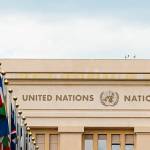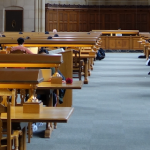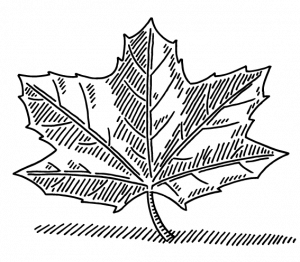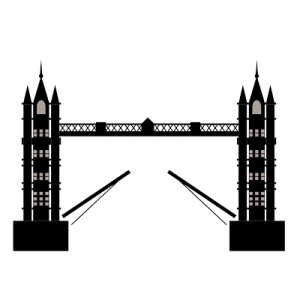For Michelle L. D. Hanlon, head of admissions and co-director of the University of Mississippi School of Law’s Center for Air and Space Law, there’s no going back to pre-pandemic times.
“There’s a lot of good that has come out of having to be virtual that I hope we don’t lose when we’re back in person,” says Hanlon.
Before Covid-19, LL.M. prospects at Mississippi were selected solely from their mailed-in materials. As a small school, they didn’t have the capacity for in-person interviews, and Hanlon said students weren’t comfortable enough with video calling for virtual interviews.
But when the pandemic forced the world’s universities into virtual classroom mode, Hanlon decided to offer video calls to any prospect who emailed with a question – and was met with two epiphanies. First, that she was able to select a better class, because “we get to know our applicants much better than we used to,” says Hanlon, and fewer ill-suited prospects followed up after a quick video call with her.
Mississippi offered both an online and hybrid degree before the pandemic, but Hanlon says that now people are both more familiar with online learning but also more willing to take the leap into attending an LL.M. if they can do it from their living room, especially if they have school-age children. Because of that, she suspects, applications have gone through the roof.
Another change that she says she hopes will stay at Mississippi is open-book take-home finals in all classes, and students have two weeks to hand it in. “As a lawyer, it's not like you're going to have just two hours to figure out the answers for your clients,” says Hanlon, “and at this level you want people thinking.”
Hanlon says she keeps her Zoom window open all day long on Thursdays and Fridays, so students and prospects alike can keep popping in and out, just as if the university were running normally.
And Hanlon is no outlier – this trend of increased openness, flexibility and availability seems to be shared by many top universities.
Online meetings and virtual fitness
At Fordham University’s School of Law, the director of graduate admissions, Martin D. Slavens, says that during the uncertainty created by the pandemic, the goal was to be as flexible and transparent as possible. During lockdown he routed his office line to his home and made himself available for Skype calls with everyone who asked. Further, he organized monthly check-ins both for admitted students but also for those interested in applying.
Slavens, who will be at his home office until the fall semester, says he has enjoyed getting to know the incoming classes before their orientation.
“Normally this is the time where I really start putting names and faces together,” Slavens says, but dealing with student visas and late deadlines, brought everyone closer together.
To foster more community at Fordham, virtual talks featuring alumni from all over the world took place and the assistant dean, Toni Jaeger-Fine, organized virtual fitness Fridays.
Many of these virtual events were open to the public, not just students and Slavens said they were well-attended.
“Something that really stuck out for me that was these kinds of events can be so successful over Zoom,” says Slavens, “where we can have a wider pool of alumni and people who are saying well, I'm not in New York, but I'm happy to do it, and so availability has gone up.” Slavens says he’d be interested to see the virtual talks continue even after the school goes back to in-person teaching in the fall.
One thing that Slavens says will not change, is encouraging prospects to reach out to the schools with any queries they may have.
“We're just eager to get the information out to them and kind of talk this through with them. It's an important decision, always,” says Slavens.
Fordham, which has mostly international students for the LL.M. has spring, fall and summer intakes, and accepts late applications. They had a slight dip in applications and an increase in deferrals during the pandemic, but Slavens says numbers are leveling back to their usual amount.
Par for the course
Other universities did not change their practices as much, but that was mostly because they already had flexibility in place before the pandemic. At Melbourne Law School, rolling deadlines (there are six different intake periods throughout the year) online teaching, and a part-time option were par for course, so application have remained stable, according to a Melbourne Law School spokesperson. Further, recruitment staff at Melbourne Law are available for virtual one-on-one appointments with prospective students.
Similarly, at London’s University College London’s Faculty of Laws, “we have long offered prospective students the opportunity to meet our academics, students, alumni, and faculty admissions team members online any questions they may have,” says Sarah Campling, director of graduate taught programs. She explains that holding the events online gives everybody the opportunity to connect with students and alumni all over the globe, and prospects are invited to, and very much welcomed at all virtual events.
“This year has seen a slight increase in opportunities for prospective students to meet our faculty and we will continue to run these opportunities again in future years,” says Campling.
Many universities, including UCL and the University of Dublin post 360-degree videos of virtual tours on their websites, and other videos featuring academic staff, creating the opportunity to “visit” the university for those who are unable to travel to the campus.
Accelerated by the pandemic, universities are increasingly exploring avenues where the virtual can replace the in-person whenever necessary.
Kelley McCabe, an administration officer at Trinity College Dublin’s School of Law, who responds to all applicant queries says that she was impressed with how quickly the staff at the library pivoted to the virtual when students were barred from entering.
“Our library were unbelievable,” says McCabe. “they scanned chapters within copyright law, and they had click and collect services and so on. We were looking in awe, how quickly they transitioned.”
She says both colleagues and students rose to the challenge, with virtual coffee dates and online networking, even reaching out to alumni that pre-pandemic they would not have.
“They're finding alumni from past classes to try and do one on one mentoring,” says McCabe.
Fordham’s Slavens says he thinks that what the pandemic has taught everybody is that these are the kind of situations where “you have to just be optimistic and open to whatever challenges are coming. We've really seen people make the most of this and just do things that we didn't think about before.”
He says that networking is key both in the legal field as well as the LL.M. experience, and seeing what students have achieved during lockdown has been impressive.
“When we were hearing about students who were saying, now I can take part in a lot more events and I'm seeing some of the same people and I'm reaching out and introducing myself as somebody who's in this practice area - those kinds of success stories are really, really impressive,” says Slavens.










